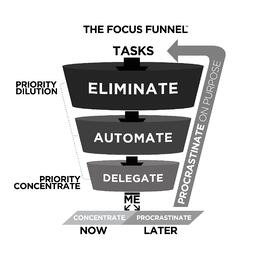While some of us may not have watched that scene from I Love Lucy before today, we experience our own version of it every day. Rather than chocolates racing at us, it’s texts, emails, phone calls, projects, reports, presentations, and deadlines – an endless conveyor belt of things to do, people to see, and fires to put out. And all of that was true before we began addressing a global pandemic while working remotely! Leadership can be a whirlwind of activity, with many of us feeling like we’re letting pieces and parts pass us by. Here’s the good news: leadership, unlike an assembly line, has never been about getting everything done, but about making sure we get the right things done. We recommend four steps that will help us to focus our energy on the things that matter most.
- What is important? Before we can proceed, we must answer that question. If we don’t know what we’re ultimately trying to accomplish in our lives and with our organizations, we’ll effectively be running a race with no finish line or leaving for a trip with no destination. Let’s pause and reflect on a few key questions to help us determine where we want go so that we’ll know if we make it. What do I want for my family right now? What do I want for my organization at this moment? What do I want for the people we serve during this difficult season? Once we clarify those points, we can work the next steps using The Focus Funnel by Rory Vaden.

- Eliminate the unnecessary. As leaders, if we feel like we have too much to do, it’s probably because it’s true. According to Gallup, the average American workweek is closer to 50 hours than 40 hours, and 1 in 5 Americans is working 60+ hours each week. We believe failure to prune tasks leads to work week bloat, but we often don’t prune because it feels wrong. Here’s the key – this is addition by subtraction. There are numerous activities we engage in every day that don’t help us reach the goals we identified above. We can give ourselves, our families, and our teams permission to let go of things that aren’t essential (e.g., unproductive discussions, unnecessary initiatives, meaningless reporting, useless bureaucracy) and make even more progress toward our ultimate goals. If it’s not contributing to what’s most important, let it go!
- Automate when possible. Most of our days are filled with requests, questions, pop-in visits, slack messages, and a million other items that demand our attention. The problem is that our focus is both limited and valuable. If we’re going to maximize productivity and reach our goals, we must identify what truly requires our focus, how much of our attention it deserves, and when is the best time to give it our focus. This is where automation can take care of critical tasks with little investment of our attention. We can use technology – David’s favorite is a To Do list application that ensures he doesn’t have to use his focus to remember tasks. We can also leverage personal routines and habits – each evening, Becky lays out her clothes for the next day, so she doesn’t have to think about what to wear when her brain is rested and ready to focus on more important items. If we ever think to ourselves, “There has to be an easier way to do this,” we should assume there is and go find it. When we automate, we gift ourselves time, harness energy, and free our creativity to leverage on the important activities.
- Delegate effectively. We can already see you checking out on us! As leaders, we’ve all experienced delegation failure (“I gave it to them, and then it fell apart”), and it’s easy to blame those to whom we delegated and decide we’ll never do it again. But when delegation goes awry, it’s typically because we failed to honor two critical delegation principles: capability and authority. In the pursuit of saving time, we often pass things off to others who lack the necessary training to perform the task and/or don’t understand their level of authority to complete the job (e.g., are they doing it exactly like you would, are they acting with complete independence with no need to report back, or are they doing something in between). Delegation is a process that requires our investment of time and energy up front and that may seem like too much to ask right now. But when we invest, people grow in confidence and ability and, over time, our productivity spikes, and we equip others to lead with us.
—–
Want additional insight? We’d be happy to walk through The Focus Funnel with you and share how we use this tool in our own work. Contact us at info@ethosleadership.com to schedule a video chat.


















